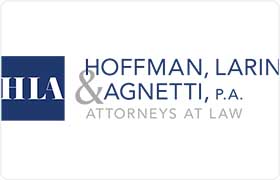 Tavernier Reorganization Lawyers, Florida
Tavernier Reorganization Lawyers, Florida
Sponsored Law Firm
-
 x
x

Click For More Info:
-
Hoffman Larin & Agnetti, P.A.
909 N Miami Beach Blvd Suite 201 Miami, FL 33162» view mapBankruptcy and Debt Experience and Results Matter
Hoffman, Larin & Agnetti have offices in South Florida. We have a long list of satisfied, well-represented clients since our firm opened in 1975.
800-893-4280
Not enough matches for Tavernier Reorganization lawyer.
Below are all Tavernier Bankruptcy & Debt lawyers.
Lawyers
1-2 of 2 matches
Medical Malpractice, Commercial Bankruptcy, Insurance, Real Estate, Personal Injury




 Martin Hoffman Miami, FL
Martin Hoffman Miami, FL